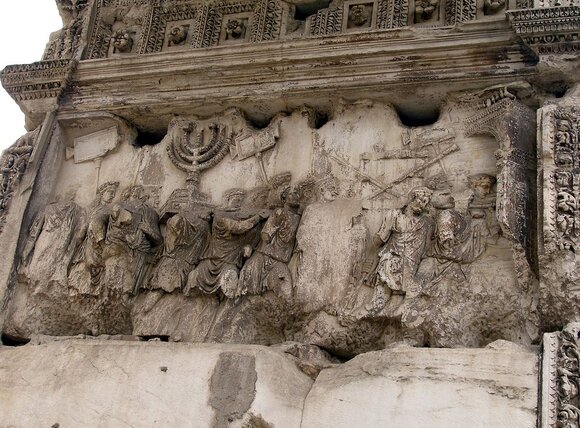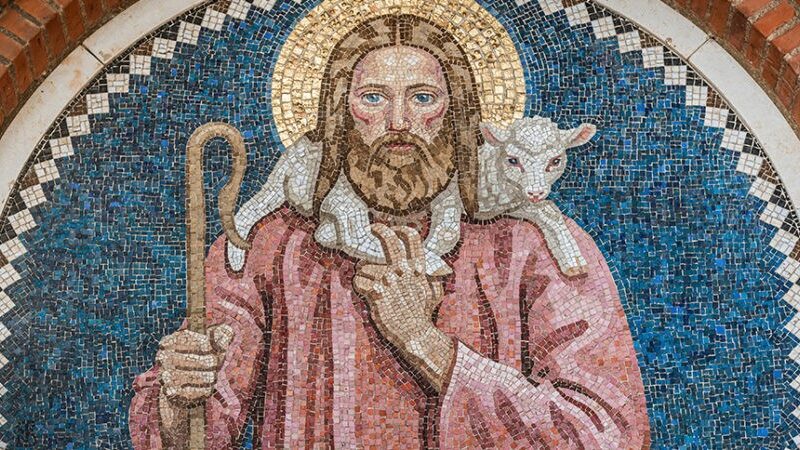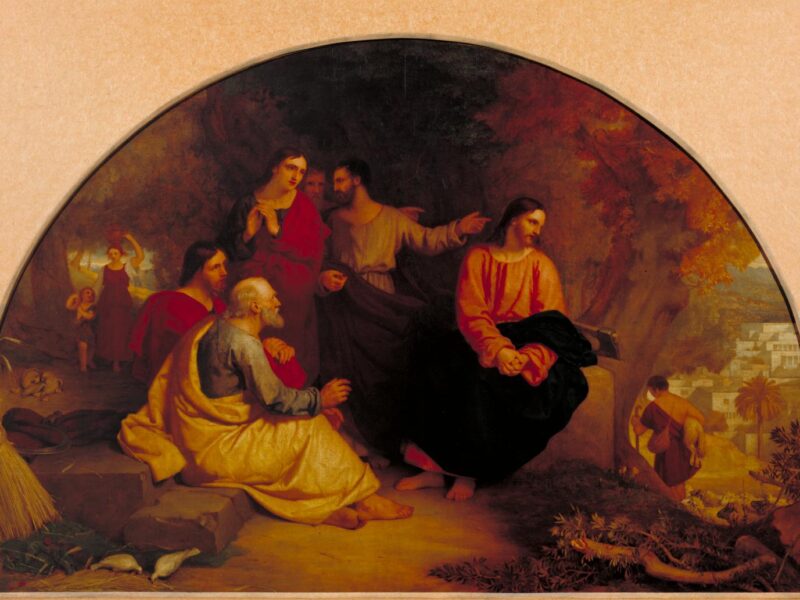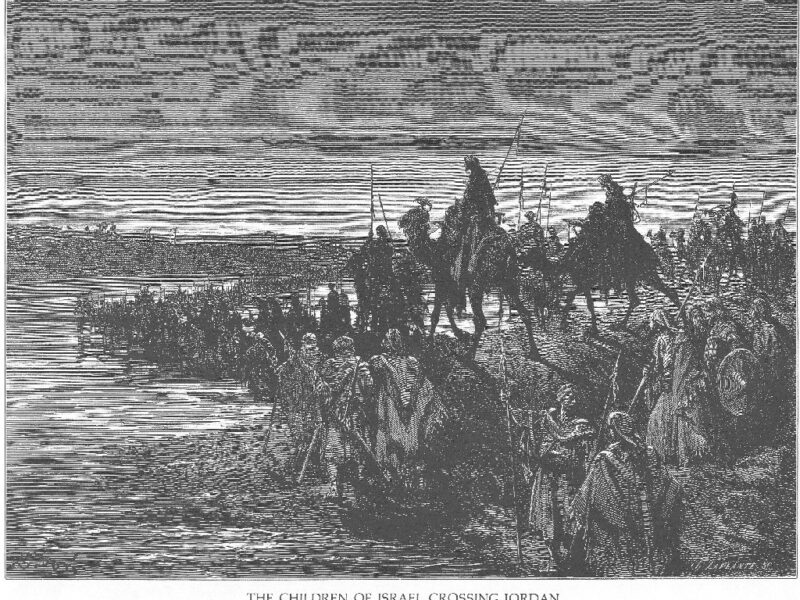
A Tale of Two Cities
By Br Bede Mullens, O.P. | In this new post from our series of meditations on the Gospel, Br Bede raises the question, ‘Why should Christians today remember the fall of Jerusalem?’
Readings for Mass (34th Thursday in Ordinary Time): Revelation 18.1-2, 21-23; 19.1-3, 9. Psalm 99. Luke 21:20-28.
‘When you see Jerusalem surrounded by an army, know then that her desolation is at hand.’ (Luke 21.20)
Once the Romans began besieging Jerusalem in 70AD, it was only a matter of weeks before they felled two of the city walls. Once they had gained entry, they glutted their savagery with abandon. The soldiers kept killing, Josephus tells us, until they grew sick of the sight and stench of blood; the survivors, they afterward took captive. The city walls were reduced to rubble, except for the parts which might prove strategically useful; and it is well known that the Temple was laid waste, but for one wall, which stands to this day – a Wall of Wailing.
‘How desolate sits the city, that once was full of people.’ (Lamentations 1.1) The surviving Jews were enslaved en masse, causing a crash in the price of slaves and a saturation of the market in human lives. In later centuries, the Roman Emperors would grant Jews entry into the city on one day in the year, on the 9th of Av, to mourn the destruction of the Temple. ‘The roads to Zion mourn, for none come to the appointed feasts; all her gates are desolate, her priests grown; her maidens have been dragged away, and she herself suffers bitterly.’ (Lam. 1.4)
We have it out of the mouth of our Lord, that Jerusalem and its Temple were, in their way, destined for destruction; or, their destruction was at least contained in the Providence of God. The real desolation, traditional Christian thought would say, occurred some 40 years earlier, when the veil of the Temple was rent in twain and the glory departed, because a new and truer Temple had been established.
Should we then lament for Jerusalem, and bewail her Temple? Or are Jeremiah’s Lamentations given us only for an allegory of Christ’s Passion and the Church’s tribulations?
Today’s first reading looks forward to the similarly, if not more drastic downfall of Great Babylon at the end of the ages. That Babylon is the city of the nations which in our day still fornicates with the mighty and makes men rich and trades in human lives. Far from a cause of lamentation, the fall of Great Babylon will be rejoicing for the saints:
“Alleluia! Salvation and glory and power belong to our God, for his judgments are true and just! For he has judged the great harlot who corrupted the earth with her fornication, and he has avenged on her the blood of his servants. Alleluia! The smoke goes up from her for ever and ever.” (Rev. 19.1-3)
The accusations levelled against Great Babylon are in many instances the same ones pressed against Israel by the prophets – self-aggrandisement, scheming and fornication with earthly powers, idolatry of every sort. Yet there is an important difference. Jerusalem, for all its sins – ‘you who kill the prophets and stone those that are sent to you’ (Lk. 13.34) – was nevertheless once a home of God. That, Great Babylon never was, never will be. Jerusalem’s standing with God was thoroughly ambivalent, in a way that should remind us of the Church. As we have Christ for our head, so God was enthroned in Jerusalem; as we are entrusted uniquely with saving mysteries for the healing of the nations, so in Jerusalem and in Jerusalem alone could right sacrifice be offered, and was offered (it was thought) on behalf of the whole world. We also know that, in spite of the graces given to the Church, her members too often reek of corruption and whoring – and so Jerusalem was found guilty of bloodshed and infidelity, her Temple a den of robbers.
I think we should mourn Jerusalem and sing over her the prophet’s Lamentations. Did not the Lord himself weep for her? In following his example, we mourn the fragility of the holy in this world, held as it is in earthenware vessels, chipped and cracked.
Image: Detail from the Arch of Titus, showing booty sacked from the Jerusalem Temple (including the recognisable Menorah) carried in a Roman triumph (Wikimedia Commons)
MORE ON: GOSPEL REFLECTIONS
Sorry, the comment form is closed at this time.



A Website Visitor
Thank you, Br. Bede, for this interesting and informative reflection – not thought about this in quite the same way before.